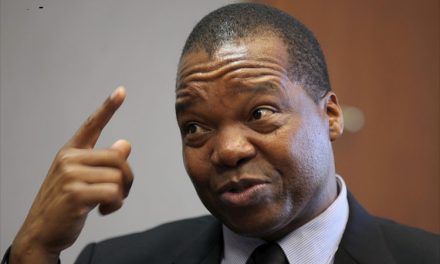2019 has been a tough year for Zimbabweans. So much so it has drawn surpassed its predecessor and drawn its comparisons with the period of 2008. 2008 was the true darkest before dawn moment for the Zimbabwean economy. 2019 has come with hyperinflation, multiple changes to the monetary system and for a brief moment the banning of deposits and withdrawals from mobile money accounts. However, Finance and Economic Development Minister Professor Mthuli has come bearing good news once more that 2020 will be a better year.
In the pre-budget preparation documents, the finance minister has come forward with a lit of figures and talk about how this is all projected to turn around in 2020. The failures of 2019 have been blamed on poor rainfall affecting the agricultural season, cyclone Idai and of course the cartels. A pleasant surprise is the notable absence of sanctions. Of course, the IMF placed the blame squarely on Mthuli Ncube’s shoulders saying the policies he has brought forward and executed have simply made things worse.
The minister boldly stated that inflation will fall to around 10% by year-end before declining to as low as 3% by the end of 2020. Unfortunately, he has not given us much detail on how this will be achieved. While inflationary decline can be expected for October, in fact, Steve Hankes inflation rate has already shown this as it is calculated daily, because October 2018 was the genesis of price increases. 10% would be incredibly optimistic even on a month on month basis. The trajectory of our inflation depends greatly on the arresting of money supply growth and in turn bringing some sanity to the foreign currency situation.

The minister has projected GDP growth for the nation to be around 5% for 2020. Some truly welcome.good news but to be taken with at least a pinch of salt. The GDP growth for Zimbabwe for 2019 was forecast at 4.2% and has been drastically revised to between -3% and -6%. Yes, GDP decline. So it becomes very difficult to place any stock in the minister’s forecast.
Government revenue collections for 2019 up to July stood at $4.99 billion which represents 20.2% overshoot of the projected $4.15 billion. This can largely be attributed to the increased tax revenue due to the 2% Intermediated Money Transfer Tax. On the expenditure side, $4.2 billion was spent which represents 15% over expenditure. However, this leaves the government with a healthy surplus of almost $800 million.
The other part of the twin deficits which Mthuli Ncube vowed to fight, the trade deficit shows positive yet worrying results. Compared to the same period (to July 2018) 2019 shows an increase in exports of 7.2% with a decline in imports by 21%. The trade deficit currently stands at $600 million versus $1.6 billion for the same period the previous year. The decline in imports is the worry however firstly because it represents the decline in aggregate demand caused by the decline in purchasing power Zimbabweand have experienced due to the currency depreciation the country is experiencing since returning the Zimbabwean dollar and making it the only legal tender. The decline in imports is worrying because manufacturing has taken a huge hit due to the unavailability of power and other input challenges.
The minister even found time to hail his own policies on Twitter while the IMF who he attributed as the source of the praise expressed an opinion quite to the contrary. As a nation, we have long complained about how our government has done a poor job of communicating. The minister even took the noteworthy step, though ill-fated, of appointing a communications task force. Communication is only as valuable as the information communicated and this latest utterance once again counts against the minister. As the nation burns and the Public Accountants and Auditors Board have cemented the use of inflation accounting in Zimbabwe the minister waxes lyrical about the beauty of the year to come.









we will keep on hoping.
Thanks for the response Tafadzwa. We must also investigate the evidence.